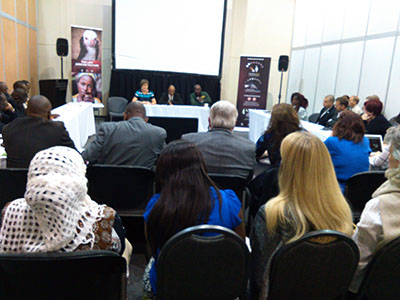SciGen Teacher Dashboard
Unit L2
Environmental Impact
 Conversation: Deciding about Lake Natron
Conversation: Deciding about Lake Natron
Duration: Approximately 120 minutes
After reviewing some simple ground rules for a class debate and considering two perspectives on the construction of a soda ash factory on the shores of Lake Natron, students engage in a class debate.
LEARNING OBJECTIVES
Students use academic language and scientific facts to support or refute a position.
Students engage in an evidence-based debate.
Students obtain, evaluate, and communicate information.
Using credible sources, students support their claim with logical reasoning and relevant, accurate evidence that demonstrates an understanding of the topic or text.
Students establish and maintain a formal style.
Teacher Tips
- Review the focus words of the week. The focus word chart linked on the unit overview page should be used as a resource for students to review definitions and sample sentences. Encourage them to use as many focus words from this and other SciGen units as they can in their arguments.
- Students may prefer to take one side of the debate or the other. If you expect students will not divide evenly, you may consider randomly assigning them roles or sides in the debate.
Teacher Tune-ups
Teaching Notes
ACTIVITY OVERVIEW
- Introduce arguing both sides in a debate (10 minutes)
- Consider BirdLife International's position (30 minutes)
- Consider Government of Tanzania's position (30 minutes)
- Class conversation (50 minutes)
Introduce arguing both sides in a debate (10 minutes)
Explain to students:
Our class will stage a short debate on whether or not a soda ash factory should be built at Lake Natron. You will need to be able to argue for both sides. To prepare for the debate, you will review two perspectives. No matter how strongly you might feel about an important issue like the flamingos at Lake Natron, understanding another point of view is critical, even if you strongly disagree with it!
If you would like to use a Cornell Notes template, click here for a Google doc.
Consider BirdLife International's position (30 minutes)
Mr. Ken Mwathe's Statement
Scrub through the video to capture and take notes on why Mr. Mwathe is against the soda ash factory.
Possible cue phrases:
- The value of fresh water
- Tourism
- Community livelihoods
First, a statement by Ken Mwathe who works as the Policy and Advocacy Coordinator at the BirdLife International Africa Office in Nairobi, Kenya. He helped convince a large private company to stop investing in the soda ash project at Lake Natron. In this second clip from The Nobelity Project’s flamingo video, he makes his case that the government of Tanzania should also stop their plans for soda ash mining.
This digital asset can be shared with students directly by clicking on the link icon at right or sharing this link.
Consider Government of Tanzania's position (30 minutes)
Students read an excerpt of an article.
Paraphrase:
These statements reported by Ms. Isaacs will help you understand the government's position in support of soda ash mining.
MONGABAY NEWSNOVEMBER 8, 2012Tanzania weighs new soda ash plant in prime flamingo territoryby Jenny R. Isaacs[The] government argues that the soda ash of Lake Natron is too economically enticing to ignore. Tanzania’s President Jakaya Kikwete set an ambitious goal of nearly doubling Tanzania’s industrial sector by 2025. On a tour in 2011, he reminded reporters that Lake Natron’s natural soda ash deposit was one of the richest in the world and he portrayed the plant as a path to national prosperity.“We cannot continue to mourn about our country being poor while our minerals are lying untapped,” he said, adding that “at times I wonder whether those who are opposing this move are really patriotic.”The Tanzanian government (represented in the project as The National Development Corporation) continues to see the soda ash project as a way to reduce poverty, provide jobs, become self-sufficient, and increase revenues.On his 2011 tour to the area, President Kikwete acknowledged that “what matters here is the application of sophisticated technology which is not harmful to flamingo’s breeding” and to that end, a representative from The National Development Corporation said in a September public meeting in Dar es Salaam that their intention was to find a way to mine soda ash using safe technology that does not harm flamingos.“We are still carrying out research to find out the best mining methods,” they said.
Possible cue phrases
- Mining important for economy
- Will help people
- Safe technology research
Class conversation (50 minutes)
Now lead the class in a debate.
Students may prefer to take one side of the debate or the other. If you expect students will not divide evenly, you may consider randomly assigning them roles or sides in the debate.
Explain to students:
It is your job to argue well for the position you are assigned. Use information on this page as well as information from the prior sessions. Is it also a great time to use your previous notes and the unit's focus words.
For ideas about how to run a class debate, click here.
End this lesson with a general discussion during which students share their own comments and raise their own questions.
BETA Version - Please send comments and corrections to info@serpinstitute.org